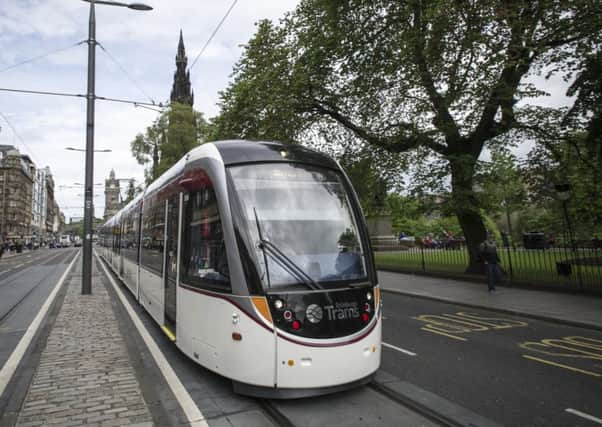Christopher Harvie: Trams to Leith shouldn't cost this much


The SNP’s negative attitude to them in 2008 had form (despite Stewart Stevenson’s general enthusiasm for rail) though my memory from that time is of Alistair Darling being the most anti-tram minister the UK has ever had – scrapping schemes for Leeds, Liverpool and Portsmouth in 2005, while Douglas Alexander, no less, toyed with closing all railway lines north of Inverness when briefly his successor as transport minister.
Yet Edinburgh’s predominantly bus-driven transit has been a major element in its unflattering pollution record. When an entrepreneur who has risen with the car such as Tom Farmer thinks things ought to be changed, surely he’s worth listening to.
Advertisement
Hide AdAdvertisement
Hide AdWhen I went to Holyrood I had to hold my peace but did what I could to help get the partial, slow and far from satisfactory line to the airport. Waverley-Leith was always the main line (I have that on Alex Salmond’s say-so) but the costs which are being quoted – though not explained – scarcely encourage rapid expansion, even if Trams Doon Leith Walk! was Margo MacDonald’s last campaign.
My workplace of Tuebingen – the size of Perth – seems capable of keeping the costs of its planned Stadtbahn down to 11m euros per km. (Nottingham got its first line for £20m per km – advised by Germany’s famous Karlsruhe). So why can’t Edinburgh act likewise, make the existing line more efficient, and shop around for a better deal?
Princes Street at present is a public-transport-only traffic jam. Would it not be sensible to impose bus/tram co-ordination (at Airport Interchange, Edinburgh Park, Haymarket, and in due course Leith). Redesign such key halts so that ‘feeder’ buses and trams - as in Karlsruhe – share platforms. Give the trams a clear run through the city centre.
The root problem as I found when revising my history of 20th century Scotland, No Gods And Precious Few Heroes, is that successive Scottish governments have let construction – creating “joabs oan ra tarr” for a tight builders cartel – expand at the cost of manufacture and upgrading.
Advertisement
Hide AdAdvertisement
Hide AdIf Edinburgh already has the rails and the spare trams, and has (painfully) done the Leith foundation work, why are there these very expensive quotes?
Systems that I know have come in on time and on budget – compare pre-tram Tuebingen expanding bus passengers tenfold from 1980 to pave the way for the Stadtbahn! Look at the reasonable cost of the new Ulm or Mainz extensions, the success of the Black Forest tram-trains and “Kulturbahn’”cycle-trains.
Contrast these with the over-engineered stations between Bathgate and Airdrie or the failure to co-ordinate rail/bus/bike in the Borders. Remember that the German state of Baden-Wuerttemberg has over 30 per cent GDP in manufacture, Scotland after Blair and Broon barely a third of that.
Success in whittling-down inflated costs will help gain new long-term perspectives. Transport really needs a ministry of its own and Derek Mackay has shown some drive both in the Glasgow-to-airport and Edinburgh tram context.
Advertisement
Hide AdAdvertisement
Hide AdA rationally-costed Newhaven stretch could help set us up for a Bridges-Infirmary-Shawfair-South Suburban link extending into Lothian. And why not think about Fife?
The upgraded freight lines serving Longannet are now facing closure. So why not use them for a Stirling-Alloa-Culross-Dunfermline-Cowdenbeath-Glenrothes-Markinch-Leven tram at 750v DC which would give “heads of the bridges” connections, and (via a Forth Road Bridge link to the airport) connect with the Edinburgh system.
There’s a precedent in the success of Germany’s long-distance Karlsruhe-Heilbronn tramline. People work on trains. They sit in cars. Even Homer Simpson learned that lesson and saved Springfield. Waved seductively in front of Brian Souter, it might even suppress the ur-Busman in him.
As “Cabinet Secretary for Technical Co-operation” (in practice a big chunk of external affairs) Mackay could liaise with Dublin, which shelved its airport metro scheme after the 2008 crash but has now revived it. Why not share planning with them?
Professor Christopher Harvie is a Scottish historian and former SNP MSP